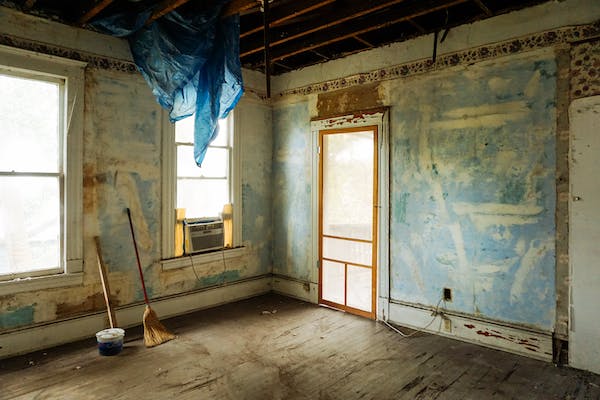Navigating the Real Estate Market: Tips and Tricks for Finding Your Dream Home
Are you ready to embark on the exciting journey of finding your dream home? The real estate market can be overwhelming, but fear not! We have compiled a list of tips and tricks to help you navigate this process with ease. From creating a budget to understanding the local market trends, we've got you covered. So grab a cup of coffee and get ready for some expert advice on how to find that perfect place to call home. Let's dive in!
Introduction to the Real Estate Market
The real estate market is a constantly changing landscape. It can be difficult to know where to start when you're ready to buy a home. These tips and tricks will help you navigate the market and find your dream home.
1. Do your research. Before you start looking at homes, it's important to have a good understanding of the market. Read up on blogs and articles about buying a home, talk to friends and family who have recently gone through the process, and consult with a real estate agent.
2. Know your budget. It's important to have a realistic idea of how much you can afford to spend on a home before you start looking. Work with a mortgage lender to get pre-approved for a loan and use online tools to calculate your monthly payments.
3. Start your search online. Once you know what you're looking for, you can start your search online. There are many websites and databases that list homes for sale in your area, including Zillow, Realtor, and Trulia. You can also drive around neighborhoods that interest you and look for For Sale signs.
4. Narrow down your options. After you've looked at several homes, it's time to narrow down your options based on your budget, needs, and wants. Make a list of pros and cons for each property and take into consideration things like the commute, schools in the area, and crime rates.
5 .Make an offer on
Types of Homes and What to Look For
There are many different types of homes out there on the market, so it is important to know what you are looking for before beginning your search. Here are a few different types of homes and what to look for in each:
1. Single-Family Homes: A single-family home is a detached dwelling that stands alone on its own lot. These homes are usually the most expensive type of home on the market, but they offer the most privacy and space. When looking for a single-family home, be sure to pay attention to the size of the lot, as well as the condition of the home itself.
2. Condos and Townhomes: Condos and townhomes are attached dwellings that are usually more affordable than single-family homes. These homes offer less privacy and space than a single-family home, but they can be a good option for those who do not need as much space or who do not want to deal with yard maintenance. When looking at condos and townhomes, be sure to check out the amenities that are included in the community, as well as the monthly association fees.
3. Mobile Homes: Mobile homes are detached dwellings that can be placed on any piece of property. These homes are typically much less expensive than other types of homes, but they may not offer as much space or privacy. When considering a mobile home, be sure to check out the quality of construction and make sure that it is properly anchored to avoid
Researching Available Properties and Prices
Before you start your home search, it is important to do your research on available properties and prices in your desired area. The best way to do this is by using a real estate website or app that allows you to search for homes by location, price range, number of bedrooms and bathrooms, and other features. Once you have found a few potential homes that meet your criteria, you can then contact a real estate agent to schedule showings.
When looking at available properties, be sure to keep an open mind about what you are willing to compromise on. For example, if you want a home with a backyard but are interested in a particular neighborhood that doesn’t have many homes with yards, you may need to be willing to sacrifice that feature. It is also important to be aware of the potential risks involved in any property purchase, such as hidden damage or problem mortgages. A good real estate agent will be able to help you navigate these risks and make sure you are getting the best possible deal on your new home.
Making an Offer on a Property
If you're ready to make an offer on a property, there are a few things you should keep in mind. First, be sure to have your finances in order. This means getting pre-approved for a mortgage and having a good understanding of your budget. Once you know how much you can afford to spend, you can start looking at properties in your price range.
When you find a property you're interested in, it's important to do your research. This includes finding out how long the property has been on the market, as well as its listing price. You should also research the surrounding area and get to know the neighborhood before making an offer.
Once you're ready to make an offer, be sure to work with a real estate agent. They will help negotiate the price and terms of the sale with the seller. Once an offer is accepted, they will also help with any paperwork and next steps that need to be taken care of before closing on the sale.
Working with a Realtor or Broker
When it comes to finding a home, working with a realtor or broker can be a big help. They can provide you with access to listings, help you negotiate prices and terms, and offer guidance throughout the process. Here are a few tips for working with a realtor or broker:
1. Do your research. Not all realtors or brokers are created equal. It's important to do your homework and find someone who you feel comfortable working with and who has experience in the type of property you're interested in.
2. Be clear about your needs and wants. Before you start working with a realtor or broker, take some time to think about what you're looking for in a home. What are your must-haves? What are your deal-breakers? The more specific you can be, the better they'll be able to help you find the right property.
3. Communicate openly and frequently. Once you've found a realtor or broker you'd like to work with, make sure to keep the lines of communication open. Keep them updated on your search criteria and let them know as soon as anything changes. The more they know about what you're looking for, the better they'll be able to help you find it.
4. Be prepared to compromise. No one ever said finding a dream home was easy! You may have to compromise on some of your criteria in order to find something that's truly perfect for you and
Financing Options and Mortgage Prequalification Process
When it comes to financing your home, there are a few different options to consider. You can take out a traditional mortgage, get a loan from the government, or use private financing. Each option has its own set of benefits and drawbacks, so it's important to do your research before deciding which one is right for you.
The mortgage prequalification process is the first step in getting a mortgage. During this process, lenders will look at your financial information to determine how much they're willing to lend you. They'll also give you an estimate of what your monthly payments will be. This can help you figure out how much house you can afford and what kind of down payment you'll need to make.
Closing on a Home Purchase
When you find a home you love, it's time to make an offer. Work with your real estate agent to come up with a competitive offer based on comparable sales in the area. Your agent will help you navigate the negotiation process and can advise you on what to expect.
Once your offer is accepted, it's time to get ready for closing. This is when the purchase contract is finalized and you officially become the new owner of the home. Your agent will be there to help you every step of the way and will provide guidance on what to expect at closing.
Tips for Long Term Home Maintenance
Assuming you've found your dream home and are settled in, it's important to maintain it well so that it will stay in tip-top shape for years to come. Here are a few tips for long term home maintenance:
1. Inspect your home regularly - Once a year, inspect your home from top to bottom, both inside and out. This will help you identify any potential problems early on so that you can address them before they cause serious damage.
2. Keep up with routine maintenance - Don't neglect routine tasks like changing furnace filters or cleaning gutters. These may not seem like big deals, but they can make a big difference in the long run.
3. Be proactive about repairs - As soon as you notice something that needs to be fixed, take care of it right away. The longer you wait, the worse the problem will get and the more expensive it will be to repair.
4. Plan for major expenses - Things like roof replacements and HVAC system repairs can be expensive, so start setting aside money each month so that you'll have the funds when you need them.
5. Stay on top of trends - Keeping up with trends in home design and construction can help you make sure your home stays up-to-date and valuable. Knowing what's popular now can also help you make wise choices when it comes time to make improvements or renovations.
Conclusion
We hope this article has been helpful in guiding you through the process of navigating the real estate market. With these tips and tricks, you can be sure to find your dream home with ease. Whether it’s a cozy bungalow or a luxurious beachside condo, take charge of your housing search and make sure you get what you want out of it. Good luck on finding that perfect place!






